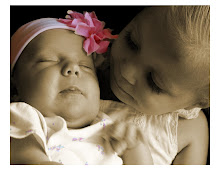In "What We Really Miss About the 1950s", the author, Stephanie Coontz, gives a compelling but definitely prejudiced, comparison of the 1950s to other decades in this century. She begins by stating a study that showed that the 1950s received more votes (38%) as the best decade for a child to grow up than any other single decade. She gives us a timeline that might help to explain what was going on in the 50s and why.
I want to focus on my perception of Coontz' negativity toward the 50's. She starts positive in her analysis of the study, stating, ".... a time when there were fewer complicated choices for kids or parents to grapple with, when there was more predictability in how people formed and maintained families....." Then, in a way of telling us that she was going to start pushing her bias, she states, "Nostalgia for the 1950s is real and deserves to be taken seriously, but it usually shouldn't be taken literally."
Although Coontz gives some strong reasoning and facts that show the greatness of the 50s decade, she seems to taint these points with her own bias against the decade. For instance, she talks about the strength of the family unit in the 50's, then gives one of her explanations for this as, "....having the wrong friends.... or belonging to any 'suspicious' organizations could ruin your career and reputation, it was safer to pull out of groups..... and focus on your family." This piece is laced with a very strong undertone that shows Coontz' distaste for the "perceived" happiness of the 50s. She doesn't hide this opinion when she states, "We now know that the 1950s family culture was not only nontraditional; it was also not idyllic."
Her negativity about the 1950s is not without it's facts, but you could easily sense which way Coontz swayed in the her feelings about the "ideal" families of that era. The title "What We Really Miss About the 1950's" must have been given with a "hint, hint, nod, nod", for she didn't seem to think there was very much good that came from that decade. She shows how easy it can be, through writing, to twist information any way you want it to go. She was able to use positive data for the 1950's and shine a negative light upon it.
Home and Family Readings
16 years ago


This is a great, very detailed response. You have done a nice job thinking about your reaction to this reading and articulating it. I look forward to hearing more of your thoughts during our class discussion.
ReplyDeleteYou must like english classes. Very well said about the negatively that Coontz gave about 1950s. At first it seem to me that she was going for postive of the 1950 but at the end she didnt. great job!
ReplyDeleteI too noticed the negative light that Coontz shed on the 50s. I was baffled as I read, the title "What We Really Miss About the 1950s" was so misleading. I had a hard time finding anything to like about it due to the way she presented the information. Thanks for your thoughts!
ReplyDeleteI love how you put this! It is really funny how she is saying mostly good things about it but most everyone is getting a negative feeling about the 50s.
ReplyDelete